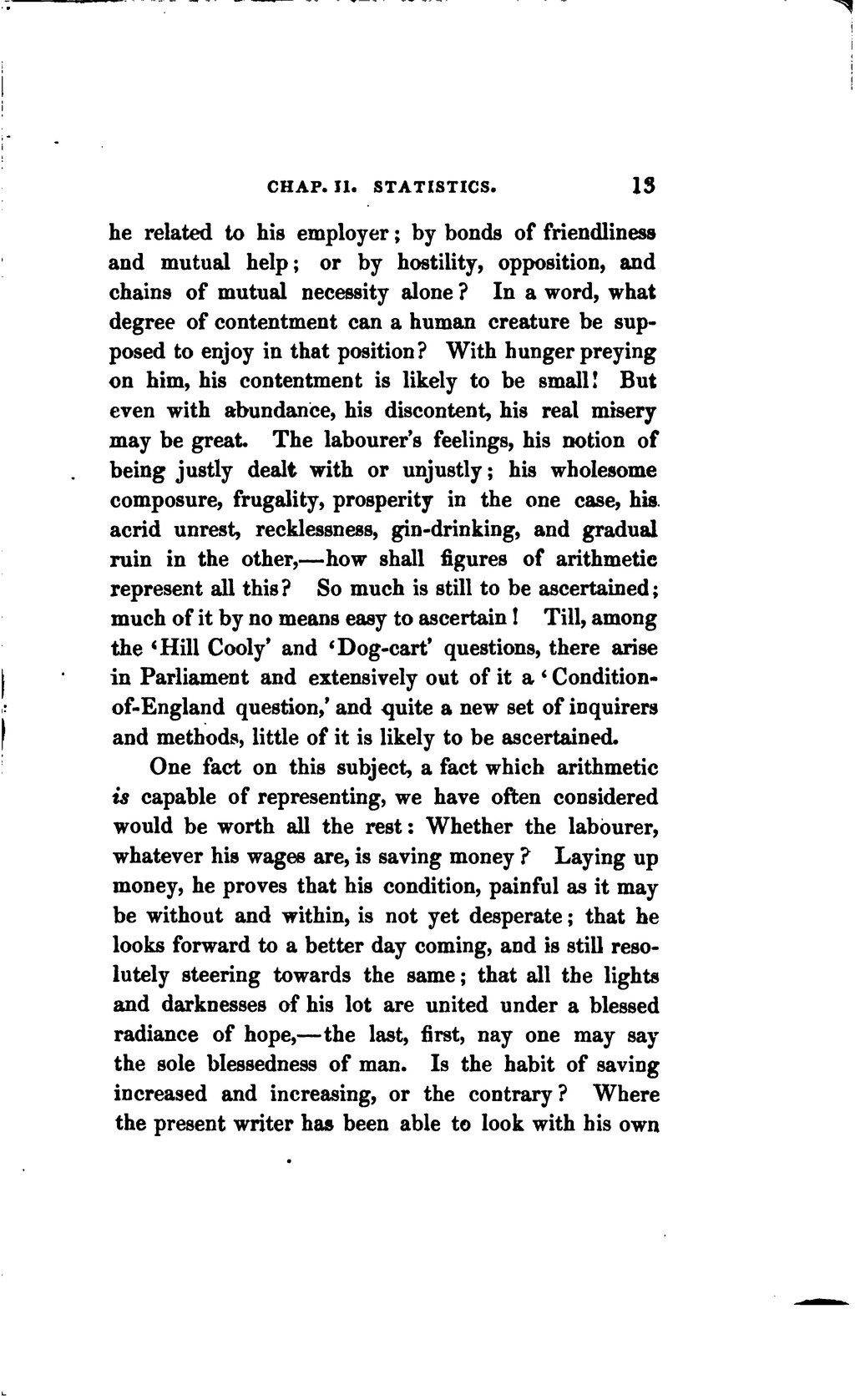he related to his employer; by bonds of friendliness and mutual help; or by hostility, opposition, and chains of mutual necessity alone? In a word, what degree of contentment can a human creature be supposed to enjoy in that position? With hunger preying on him, his contentment is likely to be small! But even with abundance, his discontent, his real misery may be great. The labourer's feelings, his notion of being justly dealt with or unjustly; his wholesome composure, frugality, prosperity in the one case, his acrid unrest, recklessness, gin-drinking, and gradual ruin in the other,—how shall figures of arithmetic represent all this? So much is still to be ascertained; much of it by no means easy to ascertain! Till, among the 'Hill Cooly' and 'Dog-cart' questions, there arise in Parliament and extensively out of it a 'Condition-of-England question,' and quite a new set of inquirers and methods, little of it is likely to be ascertained.
One fact on this subject, a fact which arithmetic is capable of representing, we have often considered would be worth all the rest: Whether the labourer, whatever his wages are, is saving money? Laying up money, he proves that his condition, painful as it may be without and within, is not yet desperate; that he looks forward to a better day coming, and is still resolutely steering towards the same; that all the lights and darknesses of his lot are united under a blessed radiance of hope,—the last, first, nay one may say the sole blessedness of man. Is the habit of saving increased and increasing, or the contrary? Where the present writer has been able to look with his own
